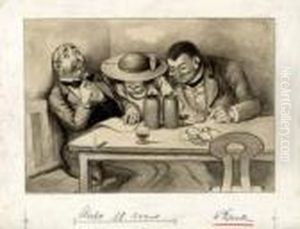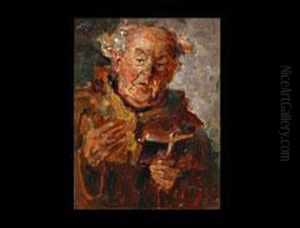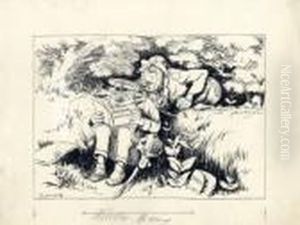Rudolf Wolf Paintings
Rudolf Wolf was a Swiss astronomer and mathematician known primarily for his contributions to the study of solar phenomena and his work in establishing the scientific discipline of astrophysics. Born on July 7, 1816, in Fällanden, near Zurich, Switzerland, Wolf demonstrated an early interest in mathematics and the natural sciences. His academic journey led him to the University of Zurich, where he pursued studies in mathematics and physics, laying the groundwork for his later contributions to astronomy.
Wolf's professional career was marked by his tenure at the Bern Observatory and later at the Federal Polytechnic Institute in Zurich, now known as ETH Zurich, where he served as a professor of astronomy. It was during this time that Wolf developed his enduring interest in solar studies, particularly in the sunspot cycle. He is best remembered for his formulation of the Wolf number, a method for quantifying the number of sunspots and groups of sunspots observed on the sun's surface, which is still in use today. This work significantly advanced the understanding of solar activity and its cyclical nature.
In addition to his solar studies, Wolf's interests spanned a wide range of astronomical phenomena. He conducted extensive research on historical astronomical observations, seeking to understand the long-term patterns of solar activity and their potential impacts on Earth's climate. His efforts in compiling and analyzing historical data on sunspots were foundational to the field of heliophysics.
Wolf's contributions extended beyond his research; he was instrumental in fostering the development of astrophysics as a distinct scientific discipline. He was a prolific writer, authoring numerous papers and books that disseminated his findings and theories to both the scientific community and the public. His works played a crucial role in promoting the importance of systematic observation and mathematical analysis in understanding celestial phenomena.
Rudolf Wolf passed away on December 6, 1893, in Zurich. His legacy endures in the ongoing study of solar activity, where the Wolf number continues to be a vital tool for astronomers. Wolf's dedication to the integration of observational astronomy with mathematical analysis paved the way for future generations of astrophysicists and remains a cornerstone of the field.

















